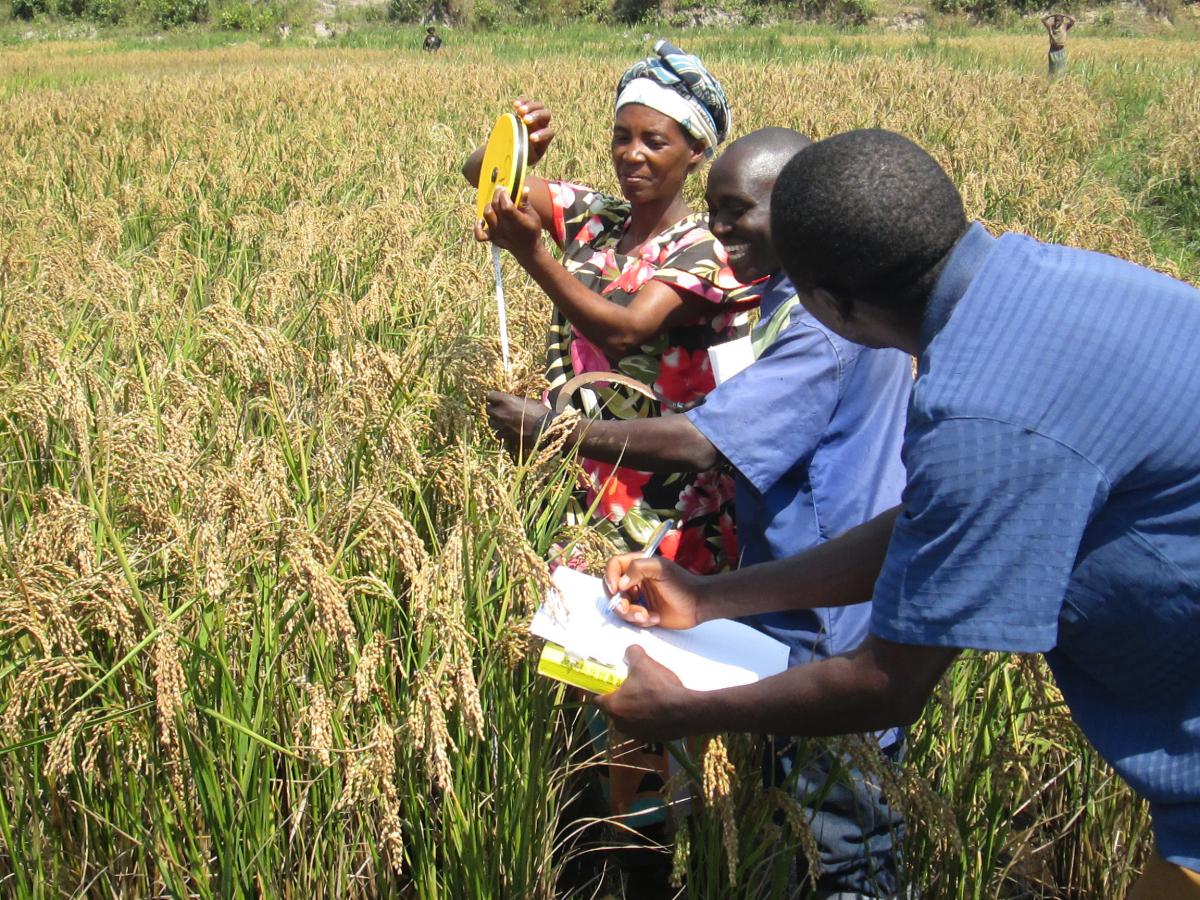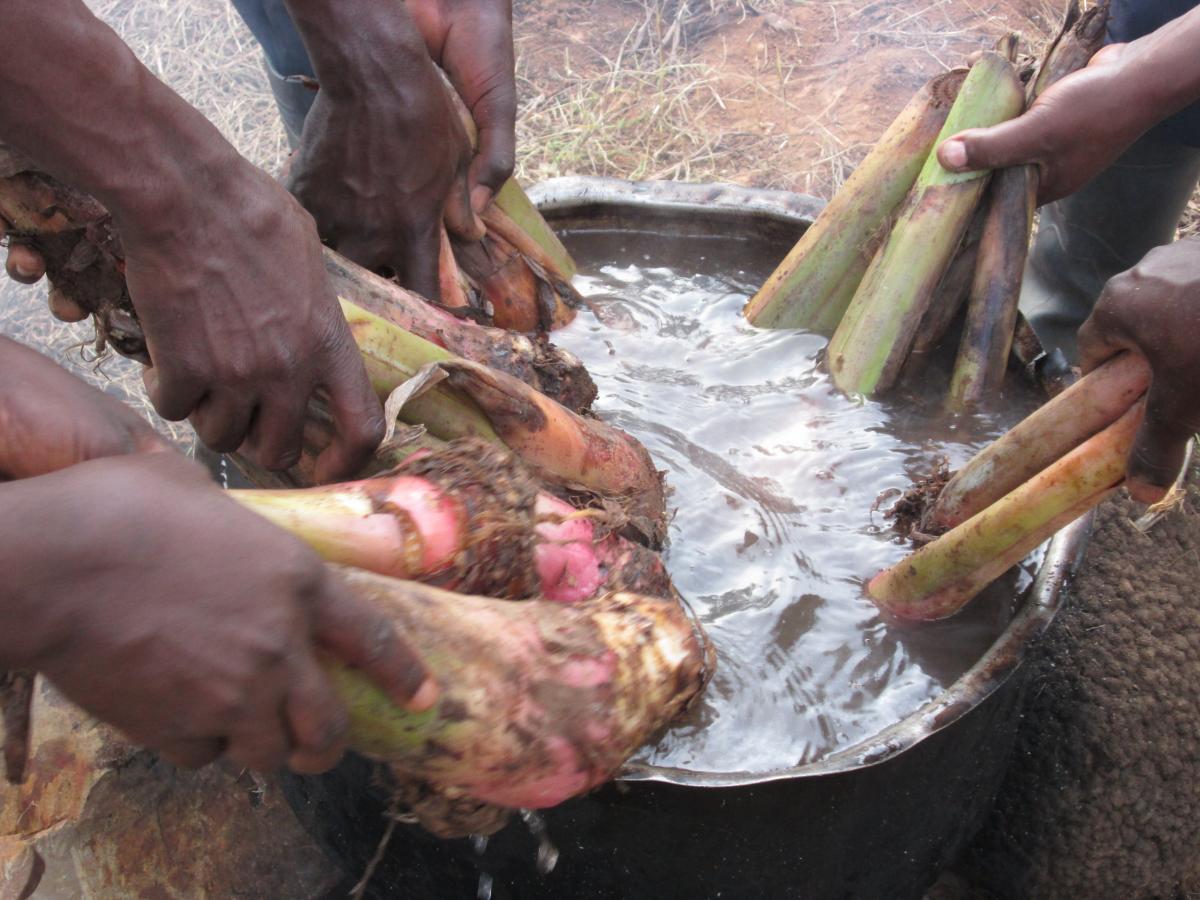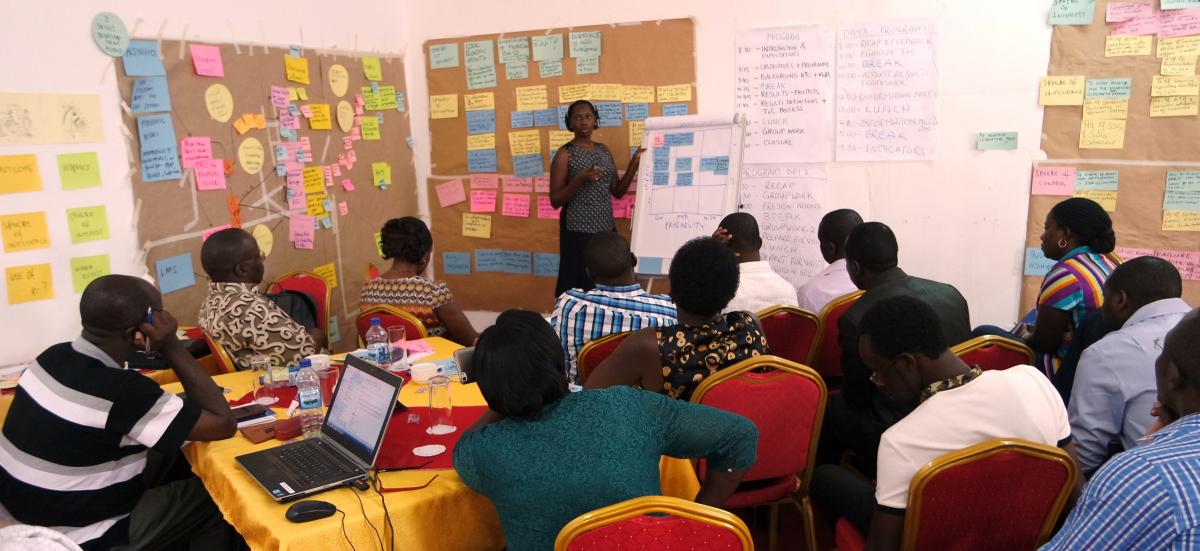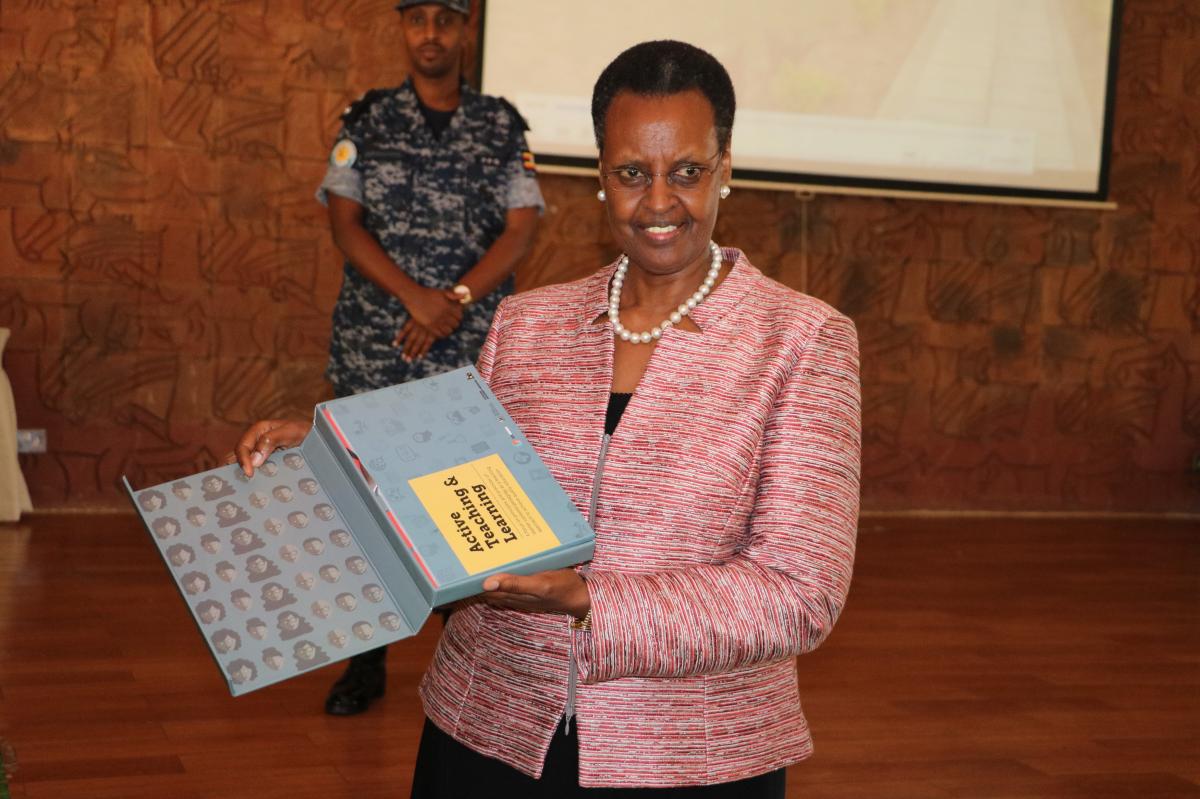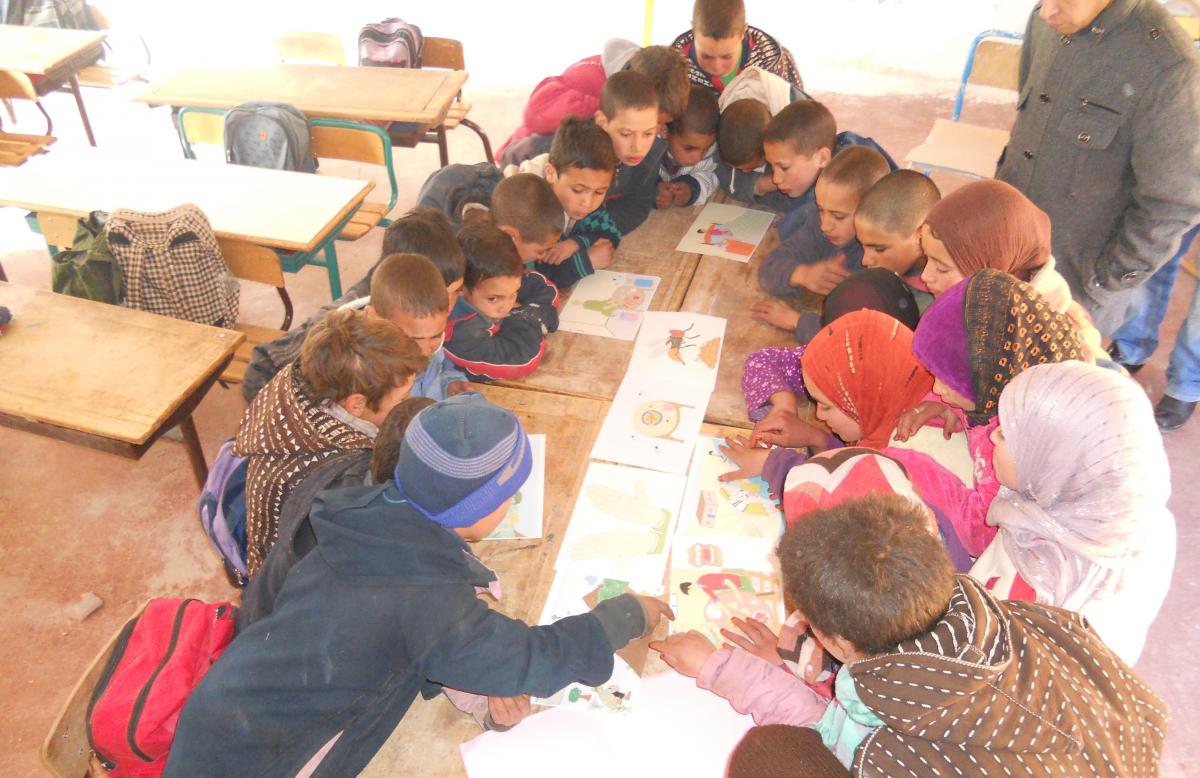Rechercher
Affichage de 2340 à 2355 sur 2520 actualités
-
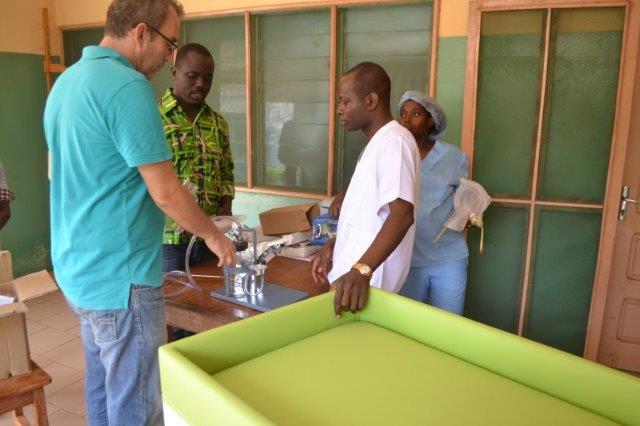
Lutte pour la réduction de la mortalité maternelle et infantile au Bénin : l’Agence belge de développement (CTB) offre un important lot de matériels
Bellya SEKPON | 02/11/2016
L’Agence belge de développement (CTB), venant en appui à la Direction Départementale de la Santé du Mono et du Couffo (sud Bénin), a offert, les 13 et 14 octobre 2016, un important lot de matériels aux centres de santé de la région. Cette action a pour but de réduire la mortalité maternelle et infantile en garantissant le bon déroulement de chaque accouchement et en permettant que les meilleurs soins soient administrés aux nouveaux nés en cas d’urgence. En effet, au Bénin, au moins 1400 femmes meurent chaque année des complications de la grossesse, de l’accouchement et des suites de couches. Pour 100 000 naissances, on enregistre la mort de 340 mères en 2013, d’après le Groupe inter-Agences au niveau mondial pour l’estimation de la mortalité maternelle. De plus, l’évaluation des besoins en soins d’urgence pour les nouveaux nés et les femmes enceintes (plus connu sous le nom de Soins Obstétricaux et Néonatals d’Urgence ‘SONU’) faite en 2010, a révélé que l’une des principales causes des décès maternels est le dysfonctionnement du système de santé. Ce dysfonctionnement est caractérisé par trois différents retards à savoir le retard dans la prise de décision de recourir aux services de santé ; le retard d’acheminement vers un service de santé approprié ; et enfin le retard dans la prise en charge après l’arrivée dans les services de santé.Selon l’Enquête ‘Service Availability Readness Assesment’ (SARA), visant à évaluer la capacité opérationnelle des services de santé, réalisée en 2012, l’offre des soins d’urgence pour les nouveaux nés et les femmes enceintes sur le plan national est de 12%. Un taux excessivement faible. Or, ce n’est que par l’offre de ces soins que les retards pourront être réduits, étant donné que le personnel de santé n’a pas la maîtrise sur les retards liés à la décision de recourir aux services de santé ou d’y être effectivement acheminé. Ceux–ci dépendent en grande partie du patient et de son entourage. Il est donc fondamental de renforcer les capacités du personnel soignant dans le domaine des soins d’urgence pour les nouveaux nés et les femmes enceintes et d’assurer la disponibilité des matériels, équipements et infrastructures nécessaires.Dans l’optique de participer à la résolution de ce problème d’envergure, l’Agence belge de développement (CTB), a pris plusieurs initiatives. Par le biais de son « Programme Appui aux organisations béninoises par le renforcement des compétences des ressources humaines (PAORC) », l’institution a organisé différentes sessions de formations à l’endroit de tous les agents des maternités.A travers son « Programme d’Appui au Secteur de la Santé (PASS Sourou) », la CTB a procédé à l’ouverture dans l’hôpital départemental du Mono Couffo, depuis 2014, d’un centre départemental de formation dit “centre SONU”, de l’instauration d’audits systématiques après chaque décès maternel ou néonatal, de la surveillance des soins d’urgence pour les nouveaux nés et les femmes enceintes, et enfin, aujourd’hui, de la remise d’un important lot de matériels et d’équipements d’une valeur de huit millions de francs CFA.Ces équipements viennent compléter le plateau technique, afin d’assurer les soins d’urgence pour les nouveaux nés et les femmes enceintes, de 16 formations sanitaires des quatre Zones Sanitaires des départements du Mono et du Couffo. Le matériel offert est composé d’aspirateurs manuels intra-utérins, d’insufflateurs néonataux, de ventouses, de boites chirurgicales DIU et de tables de réanimation du nouveau-né.Le Directeur départemental de la santé, Dr. Aimé GOUNDOTE, recevant ce don, après avoir souligné l’importance et le coût élevé de ces équipements, a remercié l’Agence belge de développement (CTB), plus spécifiquement ses programmes « Appui au Secteur de la Santé (PASS Sourou) » et « Appui aux organisations béninoises par le renforcement des compétences des ressources humaines (PAORC) ».Il s’est aussi engagé à veiller à son bon usage pour améliorer la santé maternelle et néo natale.Sous la supervision de l’Expert Bio médical du PASS Sourou, Marc MYSZKOWSKI, le matériel a été installé dans les différentes formations sanitaires où la remise a été précédée d’une formation des prestataires à son utilisation et à sa maintenance.Communiqué de presse sur Relief Web
-
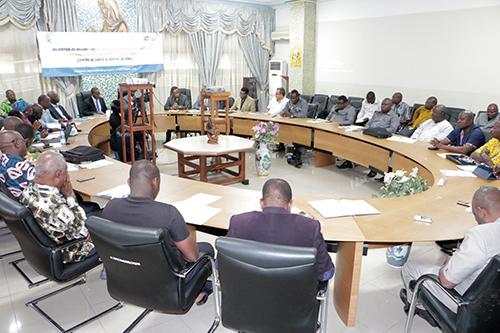
Enfin, un document actualisé de normes et standards pour la construction et l’équipement des centres de santé et hôpitaux de zone, disponible au Bénin
Bellya SEKPON | 31/10/2016
C’est l’une des salles de conférence du Ministère de la Santé qui a accueilli, ce 21 septembre 2016, la cinquantaine d’acteurs du domaine de la santé venus procéder à la validation de la nouvelle édition du volume 1 du document de normes et standards pour la construction et l’équipement des formations sanitaires : centres de santé et hôpitaux de zone du Bénin. Fidèle à son objectif d’accompagner l’état béninois dans son désir de garantir à la population du pays des soins de qualité, l’Agence belge de développement (CTB), à travers son Programme d’Appui au Secteur de la Santé (PASS Sourou), a appuyé la Direction des Infrastructures, Equipements et Maintenance (DIEM) dans la réalisation de cet ouvrage.Présidée par le Ministre de la Santé, monsieur Alassane SEIDOU, qui a d’ailleurs préfacé le document, la cérémonie de validation de ce dernier, fort simple, revêt un cachet spécial pour le Bénin. Ceci, dans la mesure où elle permet de valider un référentiel en matière d’équipements et d’infrastructures pour les centres de santé et hôpitaux, un document qui, dès lors qu’il sera disséminé et utilisé, aura un impact positif et prépondérant sur la santé des populations béninoises. Car, comme l’a si bien noté le Conseiller technique juridique au Ministre de la Santé, monsieur Alassane AMADOU SANNI, «L’environnement sanitaire est un tissu où tout s’accorde. Même s’il est bien formé, le médecin ne peut bien travailler s’il n’a pas le bon matériel». De plus, selon monsieur Mohamed Lamine DRAME, Co-responsable du Programme d’Appui au Secteur de la Santé (PASS Sourou) de la CTB Bénin, «ce document permettra d’éviter de se retrouver dans la situation actuelle où l’on note la présence, dans les formations sanitaires, d’équipements de marques diverses, fournies par le financement de partenaires différents, ce qui a un impact négatif sur la formation des personnes devant utiliser ces matériels, de même que sur l’achat des pièces de rechange et la maintenance.»La nouvelle édition du volume 1 du document de normes et standards pour la construction et l’équipement des formations sanitaires : centres de santé et hôpitaux de zone du Bénin, apporte des évolutions majeures par rapport à la version antérieure datant de 2000, qui s’est révélée caduque au vue des progrès de la médecine et des technologies biomédicales enregistrées ces dernières années, des nouvelles orientations dans la pratique de soins, et des nouvelles pratiques dans les structures sanitaires. L’ouvrage est le fruit d’un travail participatif et inclusif, à la conception duquel ont participé des ingénieurs, des architectes béninois, les gestionnaires de centres de santé, les médecins, les personnels de services paramédicaux. Le Ministre de la Santé, monsieur Alassane SEIDOU, lors de son intervention a présenté à l’Agence belge de développement (CTB), « les vifs remerciements du gouvernement et du peuple béninois pour cette générosité renouvelée ».La directrice des Infrastructures, Madame Adjaratou MALIKI SEIDOU a tenu, quant à elle, à saluer la disponibilité et la détermination de tous les acteurs impliqués dans l’actualisation du volume 1 du document de normes et standards pour la construction et l’équipement des formations sanitaires : centres de santé et hôpitaux de zone du Bénin et particulièrement des cadres de son département. Lors de la cérémonie, une présentation du document a été faite aux participants qui ont pu y apporter leurs corrections et amendements. Le présentateur, monsieur Marius AGOSSOU, analyste biomédical en poste à la DIEM, a tenu à noter les innovations contenues dans cette nouvelle édition. Il a, notamment, insisté sur le fait que pour pouvoir prendre en compte les fièvres hémorragiques/virales, comme Ebola, Lassa ou Zika, le document prévoit l’installation de salles d’isolement pour les malades dans tous les hôpitaux de zone. De même, dans ce même type d’hôpital, le document préconise que la pédiatrie soit séparée de la médecine générale, et que les installations pour la prise en charge de la césarienne soient renforcées. Selon le Docteur DRAME, ce document «est un outil très précieux permettant de voir où se situe le gap entre ce que nous avons et ce qui devrait être et ce qu’il faut faire pour mieux équiper nos hôpitaux. Ceci afin de concevoir des Plans d’investissements pour l’équipement et les infrastructures de nos centres de santé et hôpitaux de zone. Le document ainsi conçu pourra également servir d’outil de plaidoyer auprès du Ministère des Finances, de l’Assemblée Nationale, du Secteur Privé pour le financement des acquisitions des équipements biomédicaux ainsi que pour la construction des infrastructures des centres de santé et hôpitaux de zone. »Notons que le volume 2 du présent document a également été validé au cours de la semaine. Il concerne les Centres Nationaux Hospitaliers Universitaires et les Centres Hospitaliers Départementaux et est réalisé sous financement de la Banque Mondiale. Il ne reste donc plus qu’à souhaiter que les acteurs du secteur de la santé s’approprient ces ouvrages afin que les populations bénéficient d’une meilleure prise en charge médicale, en partant du diagnostic jusqu’au traitement. Communiqué de presse sur Relief Web
-
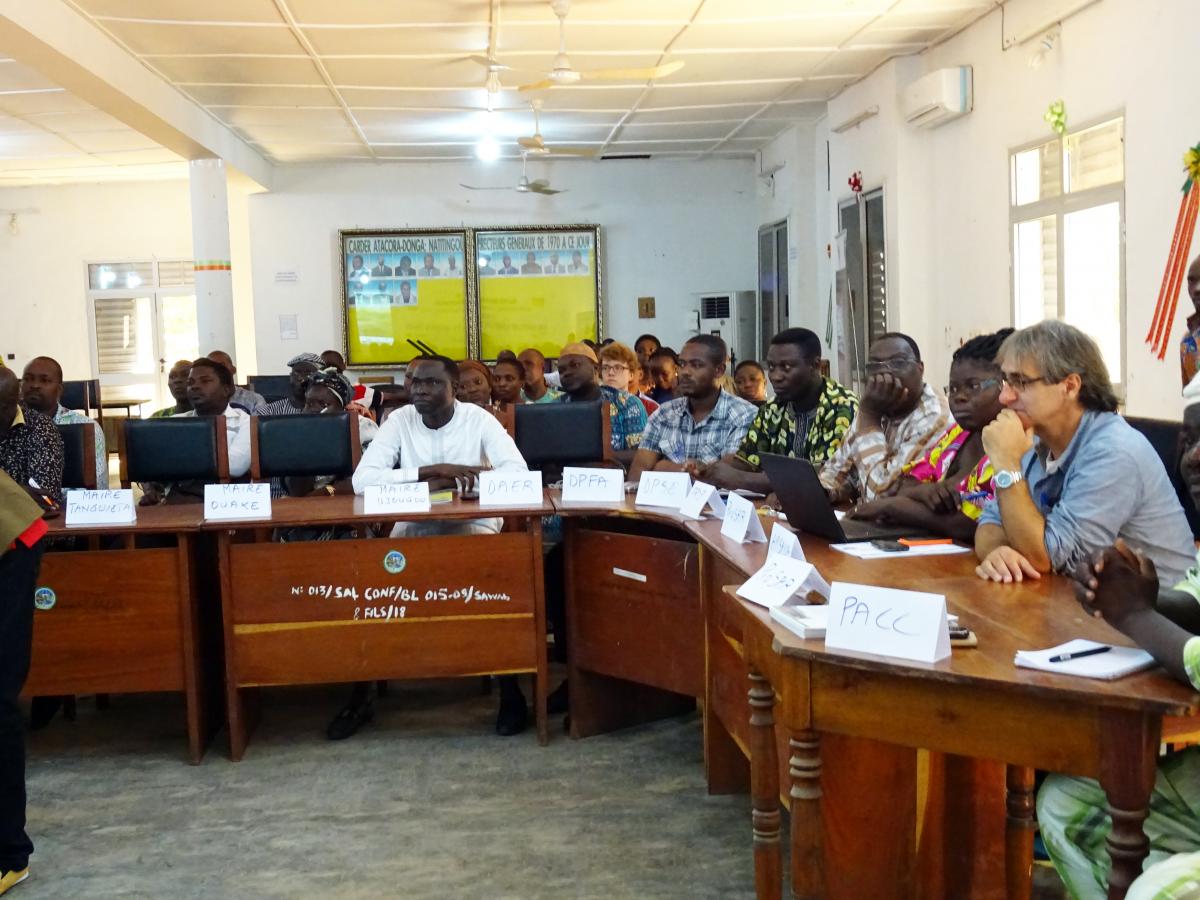
Célébration de la Journée Mondiale de l’Alimentation dans l’Atacora : les acteurs locaux en marche vers la sécurité alimentaire et nutritionnelle
Bellya SEKPON | 31/10/2016
La cause de la Sécurité Alimentaire et Nutritionnelle a réuni le vendredi 21 octobre 2016, dans la salle de conférence du Centre d’Action Régional pour le Développement Rural (CARDER), l’ensemble des acteurs intervenant dans ce domaine dans l’Atacora. Cette rencontre s’inscrivait dans le cadre de la célébration de la Journée Mondiale de l’Alimentation, instituée par l’Organisation des Nations Unies pour l’Alimentation et l’Agriculture (FAO) en novembre 1979, et dont le monde entier marquait cette année la 36ième édition. Le thème retenu cette année « Le climat change, l’agriculture et l’alimentation aussi », a fait l’objet de plusieurs communications et échanges qui ont permis aux participants de reconnaître l’importance de développer des synergies d’actions afin d’avoir un impact significatif sur l’amélioration du niveau de Sécurité Alimentaire et Nutritionnelle dans l’Atacora en particulier et au Bénin en général. Les changements climatiques, une réalité certes, mais pas une fatalité !Pas moins de 80 personnes, parmi lesquelles on peut noter, outre les maires et leurs collaborateurs, les représentants des services techniques déconcentrés, mais aussi une délégation du Ministère de l’Agriculture de l’Elevage et de la Pêche (MAEP), sans parler des représentants des coopérations bilatérale et multilatérale, étaient présentes à la cérémonie. Le caractère officiel de la rencontre a été marqué par la présence de Madame Nah Béré CHABI, Préfet du département de l’Atacora, de Monsieur Gabriel AHOUANDOGBO, Directeur Général de la Direction de l’Alimentation et de la Nutrition Appliquée (DANA) et du Directeur Général du Centre d’Action Régional pour le développement Rural (CARDER), Monsieur Amadou BARASSOUNON ALI. Ce dernier, dans son mot de bienvenue a souligné la dynamique de concertation existante entre son institution et les Partenaires Techniques et Financiers. Le Préfet de l’Atacora a, quant à elle, rappelé que le changement climatique « ne saurait être une fatalité ». Elle a précisé « nos actions, nos décisions et nos comportements quotidiens ont, en effet, tous, un impact direct ou indirect sur le climat. La multiplication des catastrophes naturelles et des problèmes environnementaux compliquent la vie des populations en général et des petits agriculteurs, éleveurs et pêcheurs en particulier dont beaucoup souffrent de la sous-alimentation chronique et restent les premières victimes des conséquences du changement climatique. »Les trois communications projetées au cours de la rencontre ont toutes portées sur la relation entre l’agriculture et les changements climatiques d’une part, et la relation entre ces derniers et l’alimentation d’autre part. A la suite de la projection du film documentaire, sur les causes et conséquences des changements climatiques dans l’Atacora, commandité par le Projet d’Adaptation au Changement Climatique (PACC), c’est avec force détails que Monsieur Marius AÏNA du Ministère de l’Agriculture de l’Elevage et de la Pêche (MAEP) et Madame Estelle ADJOVI du Projet de Sécurité Alimentaire et Renforcement de la Résilience (ProSAR), ont démontré l’impact négatif des changements climatiques et proposé des voies et moyens pour y faire face. En ce qui concerne l’agriculture, ces bouleversements devraient conduire les producteurs à changer leurs pratiques agricoles notamment en choisissant de nouvelles variétés de semences mais aussi en prenant en compte le développement ou l’émergence de nouvelles maladies et ravageurs. Pour ce qui est de l’alimentation, les modifications ont un impact aussi bien sur les choix alimentaires qui provoquent la dénutrition aux seins des communautés rurales, que sur la détérioration de la qualité nutritionnelle des aliments consommés. Nécessité d’une synergie des actions des acteurs de la Sécurité Alimentaire et NutritionnelleAu-delà des différentes allocutions et communications de cette journée, c’est la thématique de l’unité et de la synergie d’actions qui a été, le plus, défendue par les participants. Ainsi, Madame le Préfet a déclaré « Sans une action concertée visant à renforcer la résilience, il est difficile pour une grande partie des populations, notamment les plus pauvres et les plus vulnérables, de produire des aliments et de générer des revenus suffisants pour nourrir leurs familles. Il est également impossible de parvenir à un développement social et économique durable sans sécurité alimentaire et nutritionnelle. » Pour monsieur Rûdiger BEHRENS, Chargé de projet ProSAR, de la coopération allemande, « La synergie d’actions des différents acteurs impliqués dans le secteur de la nutrition dans l’Atacora est importante. Si chacun fait ce qu’il veut sans qu’il y ait concertation, cela ne marchera pas. C’est ensemble que nous pouvons avoir un impact. Ce qui est important, c’est l’union. Si nous développons une synergie dans la mise en œuvre de nos activités, nous pourrons alors réussir à aider les populations à atteindre la sécurité alimentaire et nutritionnelle. » Quant à monsieur Jacques CHABBERT, coordinateur du programme AMSANA, pour l’Agence belge de développement (CTB), il déclare : « les différents acteurs impliqués et responsables de la mise en œuvre des actions de développement, ne doivent pas avoir peur de la concurrence entre institutions et services. Au contraire c’est la mise en commun des capacités et savoir-faire respectifs, qui permettront d’être plus efficace pour relever en semble les défis existants afin d’améliorer durablement les niveaux de sécurité alimentaires et nutritionnelles des populations ». Pour le Directeur Général de la Direction de l’Alimentation et de la Nutrition Appliquée (DANA), monsieur Gabriel AHOUANDOGBO, cette synergie d’actions se constate déjà au niveau des acteurs de l’Atacora : « L’organisation de la journée mondiale de l’alimentation au niveau départemental dans l’Atacora est une première nationale. Au niveau régional, on observe autour de la Préfecture, l’engouement et l’union des Partenaires Techniques et Financiers, mais aussi du CARDER pour célébrer cette journée. Dans les autres départements nous n’avons pas eu ce même mouvement. C’est pour cela que nous saluons l’initiative. C’est une manière de réveiller les autorités locales et de leur montrer que la question de l’alimentation et de la nutrition concerne tous les niveaux. L’identification et la mise en œuvre des actions de lutte contre l’insécurité alimentaire et nutritionnelle concerne aussi bien les acteurs gouvernementaux, que les acteurs locaux. »Enfin, monsieur Rodrigue ELEGBE, coordonnateur régional Atacora-Donga du Secrétariat Permanent du Conseil de l’Alimentation et de la Nutrition (CAN), affirme : « Une synergie d’actions dans le domaine de l’Agriculture et de la Nutrition au Bénin est fondamentale. En effet depuis 1960, les nombreux programmes et projets qui interviennent dans ces secteurs de façon isolé, n’ont pas permis d’améliorer les indicateurs, de la sécurité alimentaire et nutritionnelle surtout ceux de la région de l’Atacora. »Il ne reste qu’à souhaiter que cette synergie d’actions entre les acteurs de la Sécurité Alimentaire et Nutritionnelle de l’Atacora se développe afin d’avoir un impact significatif, pour l’amélioration du bien-être des populations. Communiqué de presse sur Relief Web
-
Les Champs école paysans
Daniella KAZE | 28/10/2016
Analyse de l'Agro-écosystème par les agriculteurs bénéficiaires de la formation Champs Ecole Paysans (CEP)
-
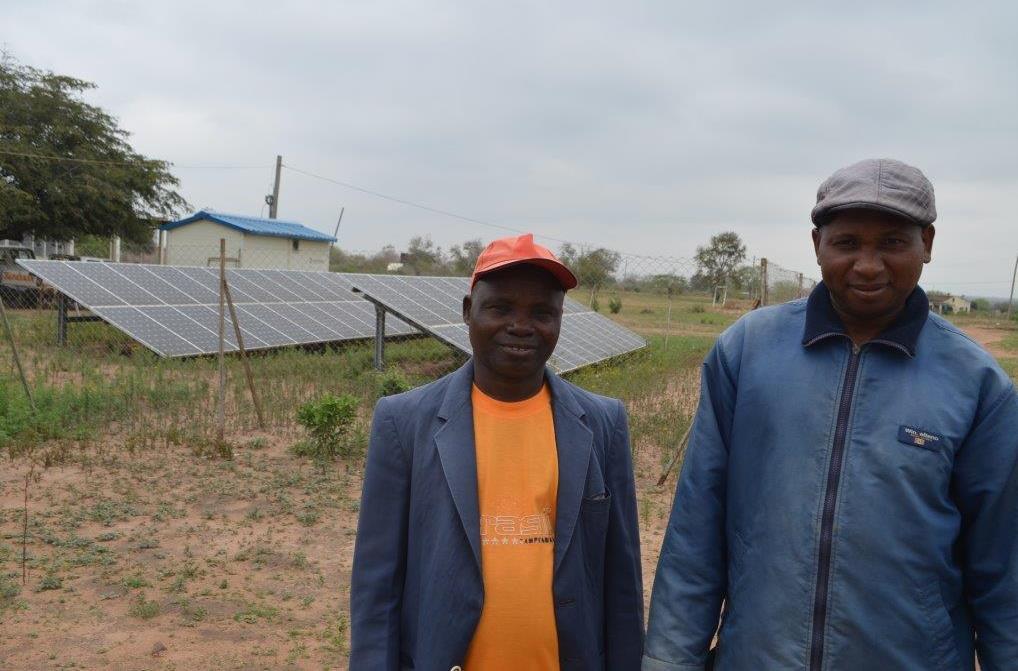
PROVIDING SOLAR ENERGY FOR OFF-GRID COMMUNITIES IN RURAL MOZAMBIQUE: BTC/FUNAE ASSESSMENT MISSION
Els DEHANTSCHUTTER | 26/10/2016
To improve and promote access to modern and renewable energy in Mozambique, BTC cooperates closely with the Mozambican national energy institution (Fundo de Energia - FUNAE) since 2010. In this light, the RERD project (Renewable Energy for Rural Development) was created, focusing on access to energy in rural areas. For this project, a team of international experts recently conducted a market study to find renewable energy solutions for off-grid communities in rural Mozambique. The study also looked into the potential role FUNAE could play in promoting private sector engagement in the renewable energy market. According to the study, one option lies in creating favourable conditions to privatize renewable energy solutions in off-grid communities. Three pilot projects were proposed: 1. Pay-as-you-go: consumers are connected to solar mini-grids and pay by mobile phone for the amount of energy they consume. Privatizing solar mini-grids would ensure a fully operational and stable energy system with regular maintenance, as the private companies who receive a license to manage the mini-grids would depend on the energy consumption of their clients in order to make their business sustainable and economically viable. 2. Solar Battery Charging Stations: a solar battery charging station is installed by a private company in the community, and consumers invest in a portable battery that they can recharge at the charging station for a small fee. This battery then provides the households with energy. The private company ensures maintenance of the charging station and of the batteries purchased by their clients. 3. Photovoltaic systems (PV system) and maintenance: consumers can invest in individual solar panel systems for their own household and the private company selling these PV systems provides regular maintenance. In the light of these pilot projects, BTC and FUNAE have conducted an assessment mission on 19 October 2016 to Porto Henrique – a little village of around 1000 people located in the Maputo province, Mozambique. Here, solar panels and a 10kW mini-grid were installed for FUNAE with South Korean funds in 2011. This installation also received a monitoring device from the RERD project that allows the functioning of the system to be monitored online. Although the system was working well for a while, it broke down and has not been fully operational for a few months. A damaged transformer and expired batteries prohibit the energy collected by the solar panels to be stored properly, and the local technicians of the village do not have the means to repair or replace the broken components. As a result, the people living in Porto Henrique that are connected to this mini-grid only have electricity on a sunny day. Apart from being a grave inconvenience for inhabitants, this lack of reliable electricity also complicates matters for the public institutions in the village: the classrooms of the local school are dark on cloudy days, making it difficult for students to read and write, and the local health center depends on a steady flow of electricity to treat its patients. Lastly, the majority of the village is not connected to the mini-grid at all: houses and other buildings in the community are very dispersed, making it difficult and costly to connect them all directly to the solar mini-grid. For these people, having no access to electricity is the harsh reality. For these reasons, Porto Henrique has the potential to be a good test-site to launch one or more of the pilot projects: Handing over the existing solar mini-grid to a private operator with a pay-as-you-go payment system would be possible, as most of the inhabitants have a mobile phone to make mobile payments, and reception is very good thanks to a network antenna located in the village. Alternatively, the distribution of batteries in combination with the installation of a solar charging station would also be a viable option, as it would not require the widely dispersed houses to be connected to the mini-grid. Lastly, interviewed residents of the village said they would also consider investing in a private PV-system. A local shop owner for example said that, despite being connected to the mini-grid, he regularly spends money on propane gas in order to run his fridge to keep his products cold, while every weekend he buys gasoline to run his generator to play some music for the village. For him, investing in a private PV-system would be a viable option that would save him money in the long run. It remains to be seen to what extent private companies are interested in tapping into this energy market, but it could be a profitable one: the potential of the PV systems business in rural Mozambique is estimated as large as 1.5-2 billion USD. In order to attract private companies, some of the projects might need to be partially subsidised as an incentive for companies to make the initial investments. However, if one or more of the pilot projects prove to be successful and profitable, they will ultimately be implemented on a national level, providing reliable, clean energy for millions of people living off the grid in rural Mozambique.
-
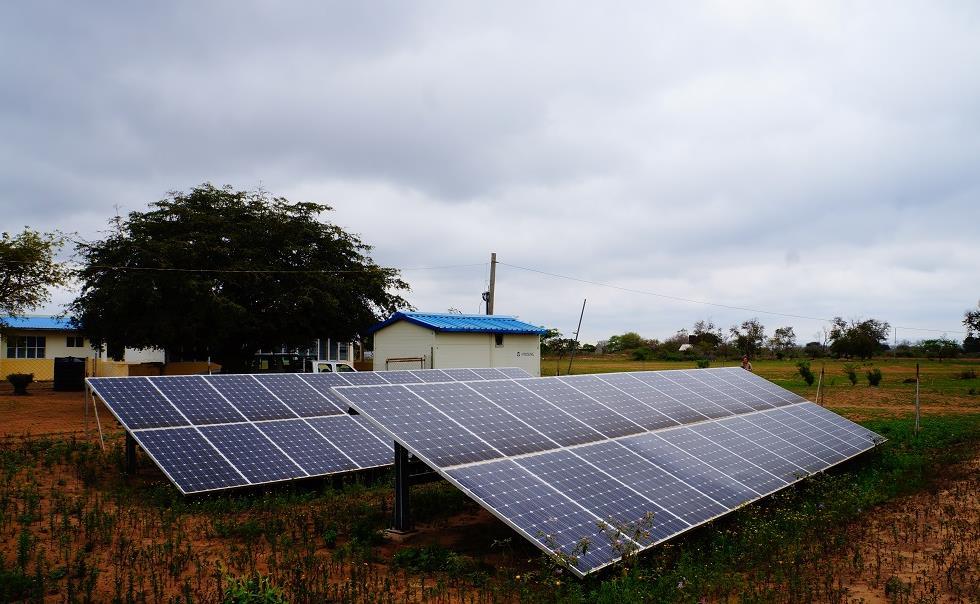
Signing of the contract between Belgium and the Netherlands
Els DEHANTSCHUTTER | 26/10/2016
On 19 December 2011, Belgium and the Netherlands signed a contract accepting the Dutch governments’ contribution of 8 340 000€ to the RERD project. (code: MOZ1002211)
-
-
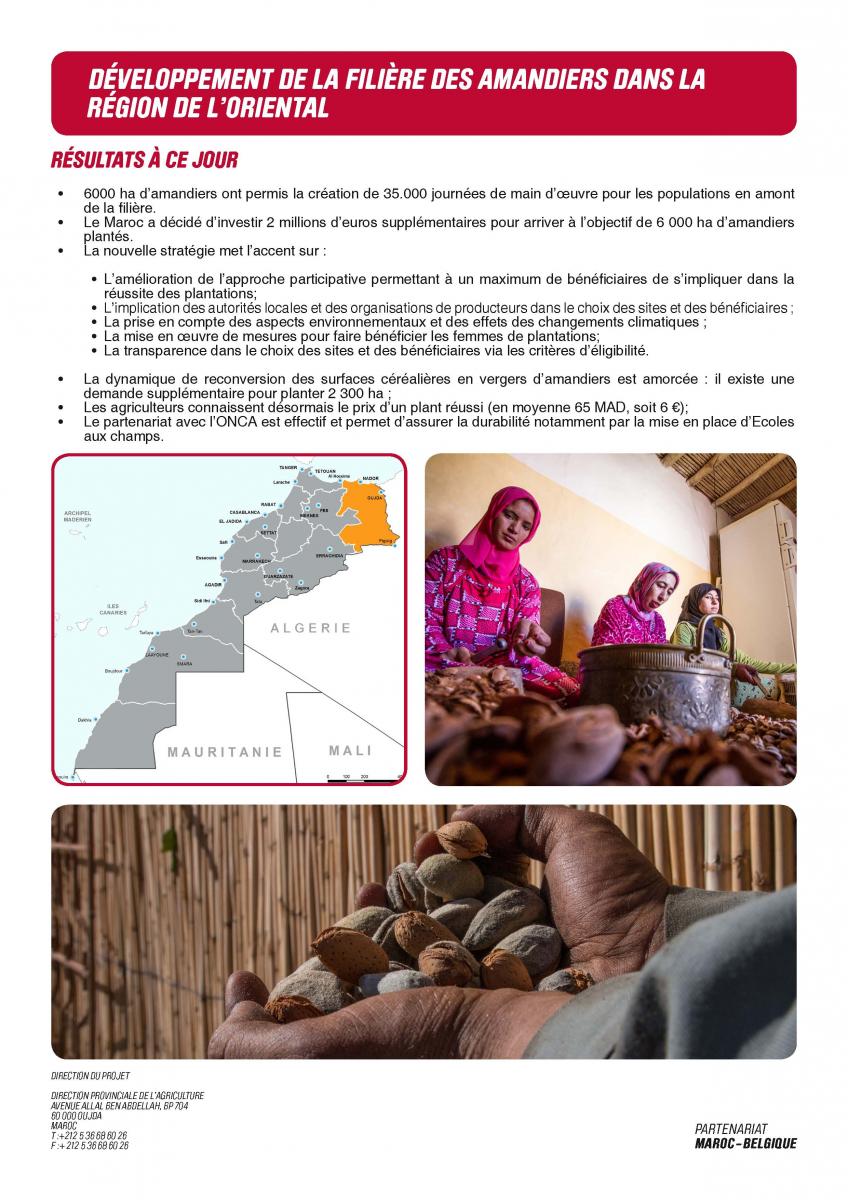
Fiche projet page (2)
Abderrahmane ELBHIOUI | 25/10/2016
Données générales sur le projet (Suite) page 2
-
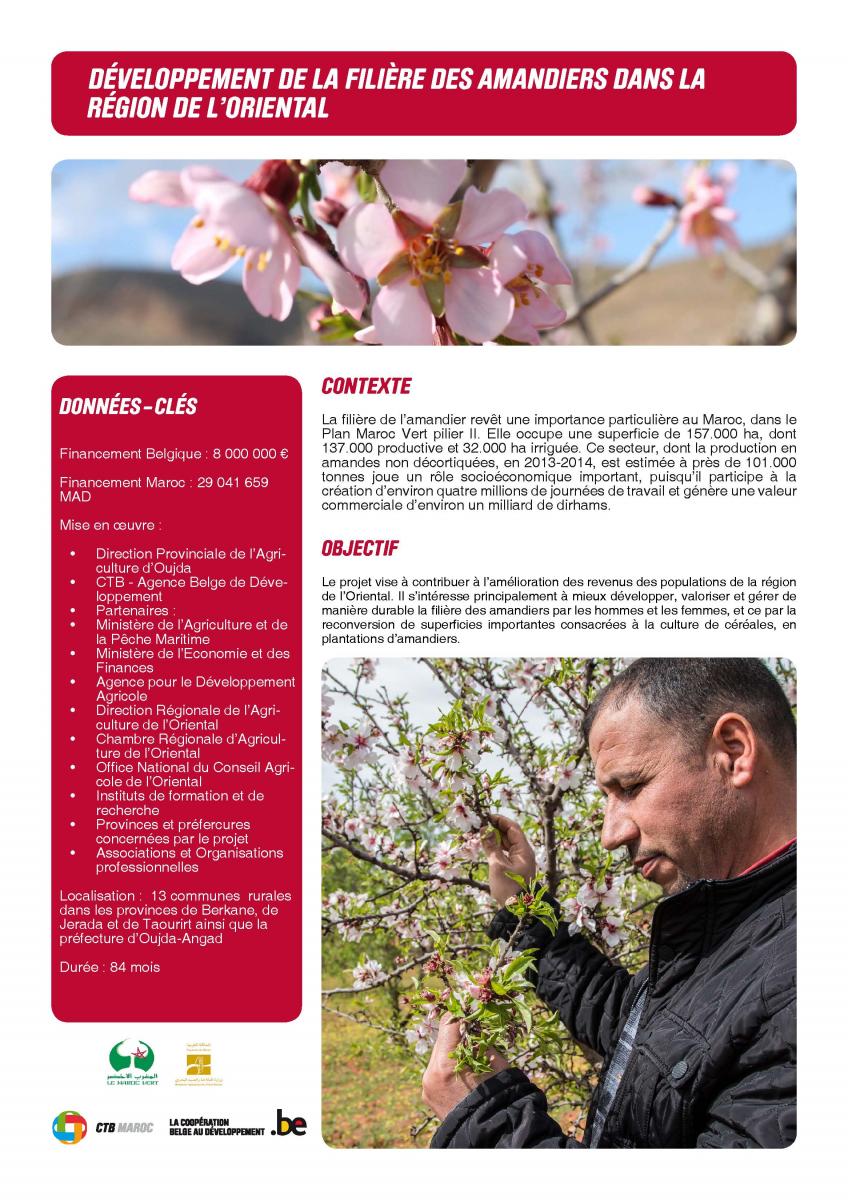
-
Striving for better results: Support to Skilling Uganda’s Workshop on theory of change
Hanna DEKERK | 24/10/2016
BTC Uganda and the Ministry of Education and Sports are jointly implementing a 5-year project (2015-2020) to Support the implementation of the Skilling Uganda (SSU) Strategy. SSU tries to advance the existing “Skilling Uganda” strategic plan (2012-2021) through a multilevel focus where it promotes systemic change at the policy level, while stimulating bottom-up partnerships between the private sector and training institutions and ensuring equitable access to training for vulnerable groups such as girls and refugees communities. This is done in the three target areas of Albertine, Karamoja and West-Nile. By improving the quality of skills development and making it more responsive to labor market needs, the project aims to make the SU paradigm shift a reality. Shifting the paradigm In order to successfully enhance this change, the SSU project must formulate the change process and map everything that may influence it. This is why BTC Uganda organized a workshop in Hoima (11th-14th October) with public and private officials of all institutional levels and regions. Over 35 people participated in constructing a “theory of change”, through which the SSU project tries to map the change process in a logical order of events that are expected to lead to the change in the long term, all while taking into account assumptions that may influence the process. As one of the participants puts it: “A theory of change tells the story behind an intervention and provides clear pathways to monitor change.” Mapping the change process For four days, the workshops’ participants sat together in groups and mapped the foreseen inputs, outputs, outcomes and impact of each specific project objective. Colorful cards were used to visualize these result-chains. The participants discussed assumptions that may influence the change process, through questions such as “Will better educated students consequently lead to higher employment rates”? or “Will parents let their daughters follow these trainings?” The participants then added these assumptions on the colorful card chains and analyzed the risks they pose to a successful project implementation. By the end of the workshop the change process was broken down into steps, each with its own measurable indicator of change. Through this result-based monitoring, where the focus lies not only on the activities and outputs but also on the outcomes and impact, the SSU project attempts to enhance the paradigm shift towards relevant and equitable skills development in Uganda. As co-manager Thierry Foubert puts it: “During the workshop the targets and necessary change indicators of three area-specific projects were discussed, going from the employment opportunities of the oil and gas sector in Albertine, to the vulnerability of the refugee communities in West-Nile and the specific needs of Karamoja.”
-
New guide for teachers to boost active teaching and learning in Uganda
Els DEHANTSCHUTTER | 24/10/2016
"Our children, our future. Our future, our children," said Mrs. Janet Museveni, Minister of Education and First Lady of Uganda as she signed the poster to officially launch the Active Teaching and Learning Guide on 2 September 2016 in Kampala. This guide was created under the Teacher Training Education project of the Ministry of Education and Sports, supported by BTC.The objective of the guide is to support teacher training colleges to create a teaching and practice-oriented learning environment, so as to improve the quality of teaching and learning in teacher education.The guide was specifically designed to train all teacher educators in Business, Technical and Vocational Education and Training, Health Education and General Secondary Education. It was piloted for a year with about three hundred Lecturers of five National Teachers' Colleges, three Instructors' Colleges and one Health Tutors' College. The initial training involved several face-to-face sessions, followed by the application of Active Teaching and Learning in lecture rooms. This offered an opportunity for the authors to frequently refine the content in order to suit the requirements for training a teacher of the twenty-first century.One thousand copies will be distributed to all lecturers of the nine National Teachers' Colleges in Uganda. The guide will also be given to Primary Teachers' Colleges, Makerere University, Kyambogo University and the Ministry of Education and Sports.
-
L'école pour tous
Meriem HILALI | 20/10/2016
Le projet d’Appui au Programme de Mise à Niveau environnementale des écoles rurales a doté 45 écoles rurales des provinces Zagora et Tinghir de blocs sanitaires, munis de fosses septiques, de puits filtrants et de lavabos. Ce sont des infrastructures sanitaires qui respectent les ratios élèves/nombre de latrines aux normes, ainsi que les dimensions genre et environnement. Elles disposent toutes d’un accès pour les enfants handicapés. Aujourd'hui, 3618 élèves dont 1746 filles les utilisent, et le projet veille à ce que ces infrastructures sanitaires qui répondent à un besoin pressant et fondamental des écoliers - surtout pour les fillettes - fonctionnent et soient bien gérés. Par ailleurs, le projet étend ses activités en construisant des infrastructures sanitaires au sein de 114 écoles rurales de trois provinces : Tinghir, Ouarzazate et Taroudant, augmentant ainsi le nombre de bénéficiaires à hauteur de 12 730 écoliers (filles et garçons). Le projet reste toujours vigilant dans la réalisation des travaux de construction, pour leur fonctionnement, leur entretien et la maintenance, et pour garantir une utilisation correcte et durable. Pour tout cela, le projet valorise les acteurs qui animent l’école rurale marocaine (Association de parents d’élèves, élus, directeurs, instituteurs et clubs d’environnement).
-

Investing in skills development: providing a way forward to young people in Uganda
Thea MATHUES | 19/10/2016
On of the problems in Uganda is that many youths do not have the skills employers are looking for. This is due to the disconnection between the degree obtained and the vocational skills needed for the jobs that are in demand for workers. The Ugandan government is aware of this challenge and is implementing a 10-year strategic plan known as 'Skilling Uganda'. BTC supports the government’s call for more skilled youth and works closely with the Ministry of Education and Sports to improve the quality of the Ugandan vocational education and training on both the local and government level.
-
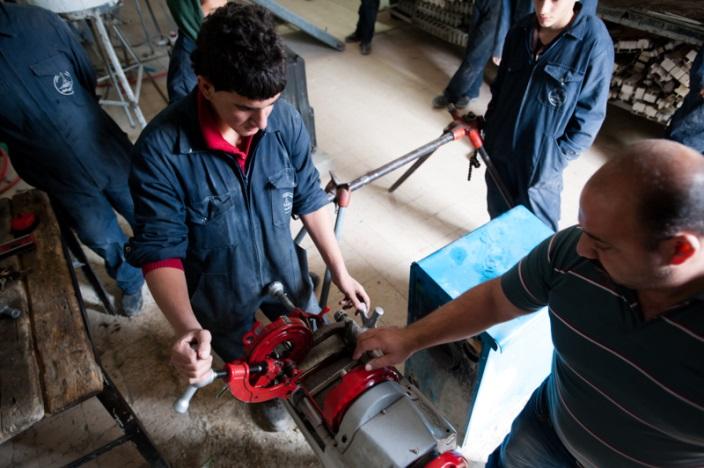
Informal apprenticeships : slavery or a once in a lifetime opportunity?
Eva MORRE | 19/10/2016
One of the biggest challenges for the Palestinians is the fast-growing number of youngsters that present themselves at the labour market. In the absence of an equally fast-growing economy, the result is a rapidly increasing unemployment. Currently we talk about youth unemployment rates of 40% for both the West Bank and Gaza. When we speak about the official unemployment figures, we know at the same time that there is a large informal economy that according to the Palestinian Central Bureau of Statistics makes up 60% of the total employment in Palestine. A substantial part of this group are young people who work in small companies as apprentices without the minimal legal protection, recognition or pedagogical coaching that can make their apprenticeship into a positive learning experience, which can increase their chances in the labour market. Overall, not much is known about informal apprenticeships and that is the reason why the Belgian Development Agency (BTC) and ILO have conducted research on the scale, types, structuring and geographical distribution of apprenticeship schemes in Palestine. The objective of the research was to provide (a) a detailed knowledge base on informal apprenticeship practices and (b) to identify opportunities for a potential framework for upgrading this informal apprenticeship. The study showed that the average profile of an apprentice is someone in his early 20’s (older for women) coming from a big family with income below the poverty line. The motivation for the internship is mostly ‘learning the skills of the trade’ and ‘to earn some money now’. The findings of the study have indicated some weaknesses to the system that leaves the apprentices without enough legal protection. The majority of the trainees are working in small companies without a written contract. Only half of the apprentices are aware of their rights regarding wages, working hours and holidays. Furthermore, only 10% if the apprentices will get a certificate after the training ends. Nevertheless, the informal apprentices are overall very successful. One in five apprentices was able to start their own business, two out of three within their field of training. Only 1% of the apprentices was unemployed after their internship. The rest are either working in the taught trade or other trade. These figures indicate the ability of the informal apprenticeship system to facilitate transition from the world of learning to the world of work. This is significant when comparing with the 40% official unemployment among Palestinian youth during the past decade. Thus, the study showed that the system is working well as it is, even though the apprentices are not always well protected. Setting regulations and standards, followed and supervised by government and private sector bodies, would be a first step towards optimising the system. One of the suggestions is to introduce a minimal pedagogical program for these youngsters, for example, by developing training programmes during one day a week in the Vocational Training Centers (VTC) under the Ministry of Labour or in the Technical and Vocational Education and Training (TVET) institutions under the Ministry of Education and Higher Education. These training programmes already exist in some cases, but should become more widespread. Furthermore, a training should be provided for the private sector organisations and companies both on how to coach an apprentice, and on a more technical level. One of the first successful ‘formalisations’ of this system is the Work Based Learning programme of the Belgian Development Agency. The first pilot WBL programme was launched last year and paired 10 TVET institutions with 30 companies to develop joint training programmes for over 200 TVET students that combined in-company training with training at a TVET institution. The programme has proven to be highly successful and offered great advantages to both the TVET institutions and the companies: a substantial reduction in costs for the participating institutions and companies, increased enrolment of young people in TVET, better trained students acquiring relevant skills and significantly higher employment among graduates. After this successful pilot, a full-fledged Work Based Learning Fund was set up to support the development and roll out of WBL programmes for TVET students. This year 73 WBL initiatives have successfully been introduced by 43 TVET institutions in combination with over 100 private sector companies. In total 1500 students have already benefitted from this program.
-

Enhance learning with user-friendly libraries
Thea MATHUES | 19/10/2016
User-friendly libraries are at the center of teaching and learning. That is why we think it is essential to assist the librarians in our supported colleges to continue to grow and deliver a better service to both students and teachers. We want to ensure that everyone on campus has access to knowledge and information through (electronic) books, the internet, a clean and silent studying environment and approachable library staff.
